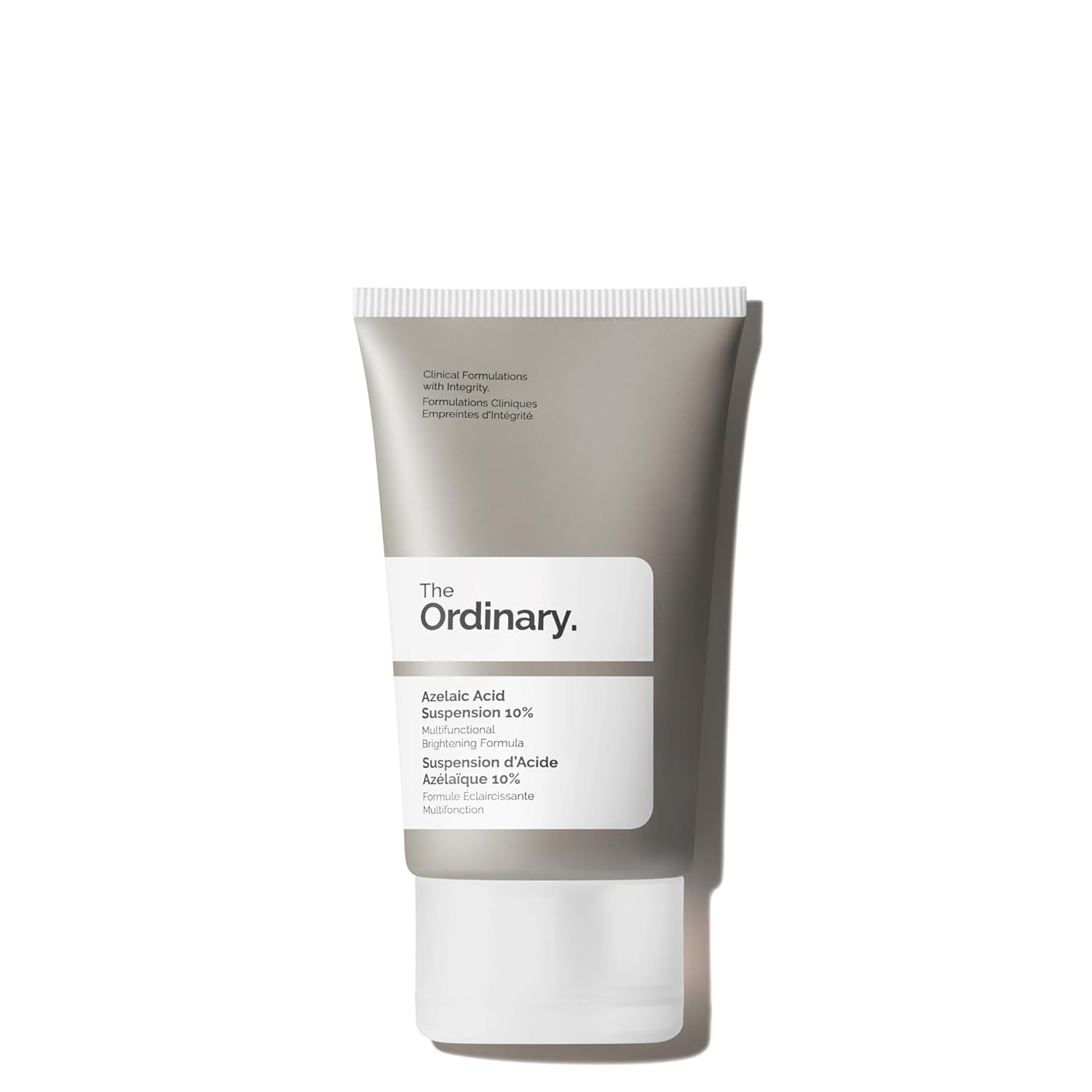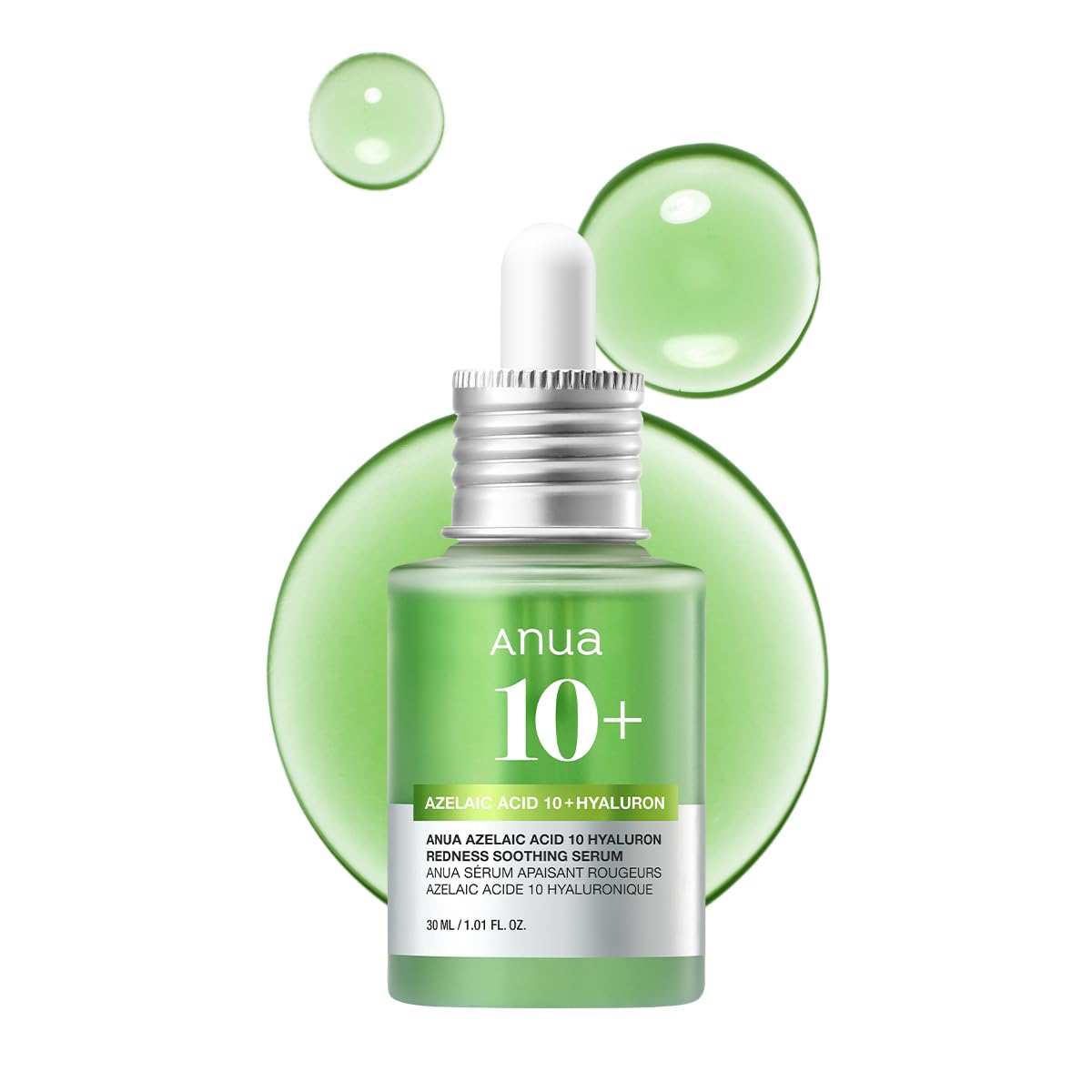I'm a participant in the Amazon Services LLC Associates Program, an affiliate advertising program designed to provide a means for me to earn fees by linking to Amazon.com and affiliated sites.
If you’ve been prescribed tretinoin or picked up azelaic acid to calm redness and fade dark spots, you may be asking: can you use azelaic acid with tretinoin? Since both are strong actives, it’s a smart question. The short answer: yes, you can — but you need to be strategic.
Feature | ||
|---|---|---|
Best for | Budget skincare lovers | Sensitive / redness-prone skin |
Formula | 10% azelaic acid suspension | 10% azelaic acid + hyaluronic acid + calming botanicals |
Texture | Creamy, slightly gritty | Lightweight, watery serum |
Irritation Risk | Higher (minimal support ingredients) | Lower (hydration + soothing built-in) |
Daily Use Comfort | Functional but not luxurious | Hydrating, comfortable, easy to layer |
Price |
Why Combine Azelaic Acid and Tretinoin?
These two ingredients work differently, which is why they’re often paired in dermatology:
- Azelaic acid: Anti-inflammatory, antibacterial, and pigment-fading. Great for calming redness, treating acne, and tackling post-acne marks.
- Tretinoin: A prescription-strength retinoid that boosts cell turnover, smooths wrinkles, clears pores, and helps collagen production.
👉 Together, they create a power duo for acne, hyperpigmentation, and uneven texture — with azelaic acid soothing some of the irritation that tretinoin can cause.
The Risks of Using Them Together
Even though they’re compatible, both ingredients can be irritating when first introduced.
- Over-exfoliation risk: Tretinoin already accelerates skin turnover. Adding azelaic acid too quickly may lead to dryness, peeling, or burning.
- Barrier disruption: If your skin barrier is compromised, combining them without caution can trigger redness and sensitivity.
👉 The key is timing and frequency — not just slapping them on together from day one.
How to Safely Use Azelaic Acid and Tretinoin
Here are dermatologist-approved strategies to make the combo work:
- Alternate Nights
- Use tretinoin one night, azelaic acid the next. This reduces irritation while still giving your skin consistent benefits.
- Split Morning + Night
- Apply azelaic acid in the morning (it’s stable and helps calm daytime redness).
- Use tretinoin at night, when your skin is in repair mode.
- Layer in the Same Routine (For Advanced Users)
- Cleanser → Azelaic acid (thin layer) → Wait 10 minutes → Tretinoin → Moisturizer.
- This method should only be attempted once your skin is already tolerant to tretinoin.
- Moisturizer Sandwich Method
- Apply moisturizer → tretinoin → moisturizer again, and keep azelaic acid for mornings. This cushions the actives to minimize irritation.
Feature | ||
|---|---|---|
Best for | Budget skincare lovers | Sensitive / redness-prone skin |
Formula | 10% azelaic acid suspension | 10% azelaic acid + hyaluronic acid + calming botanicals |
Texture | Creamy, slightly gritty | Lightweight, watery serum |
Irritation Risk | Higher (minimal support ingredients) | Lower (hydration + soothing built-in) |
Daily Use Comfort | Functional but not luxurious | Hydrating, comfortable, easy to layer |
Price |
Who Should Be Cautious?
- Beginners: If you’ve just started tretinoin, let your skin adjust before adding azelaic acid.
- Sensitive skin types: Introduce one ingredient at a time to avoid confusion about what’s causing irritation.
- People using multiple actives: If you already use AHAs, BHAs, or vitamin C, tread lightly — too many strong ingredients at once can overwhelm your skin.
FAQs
Q: Should I use azelaic acid or tretinoin first?
If layering, apply azelaic acid first since it absorbs quickly. Follow with tretinoin, then moisturizer.
Q: Can azelaic acid reduce tretinoin irritation?
Yes — azelaic acid has calming, anti-inflammatory effects that can offset some redness or burning from tretinoin.
Q: Can I use them both if I have acne?
Absolutely. Tretinoin unclogs pores and prevents new breakouts, while azelaic acid fights bacteria and reduces post-acne marks.
Q: Can I use them daily?
Eventually, yes. But start slow — alternate nights at first, then adjust as your skin builds tolerance.
Q: Do I need sunscreen if I use both?
Yes, every single day. Both actives make skin more sun-sensitive, so SPF is non-negotiable.
Bottom Line
So, can you use azelaic acid with tretinoin? Yes — they can complement each other beautifully, but only if you introduce them carefully. Think of azelaic acid as the calming, brightening partner that makes tretinoin’s powerful renewal more tolerable. With patience and consistency, this duo can dramatically improve acne, redness, and skin texture.
Other Interesting Articles
- OneSkin vs Medik8: Longevity Peptide or Retinal Powerhouse?
- OneSkin vs Augustinus Bader: Is Skin Longevity Better Than Stem Cells?
- OneSkin vs SkinCeuticals: Which Anti-Aging Brand Actually Works?
- OneSkin vs Alastin: Which Skincare Powerhouse Boosts Your Skincare Routine?
About the Author
LuxuryShimmer delivers expert skincare advice in plain, stylish language. From prescription-strength retinoids to gentle brighteners, we help you mix, match, and master your routine without the confusion.


